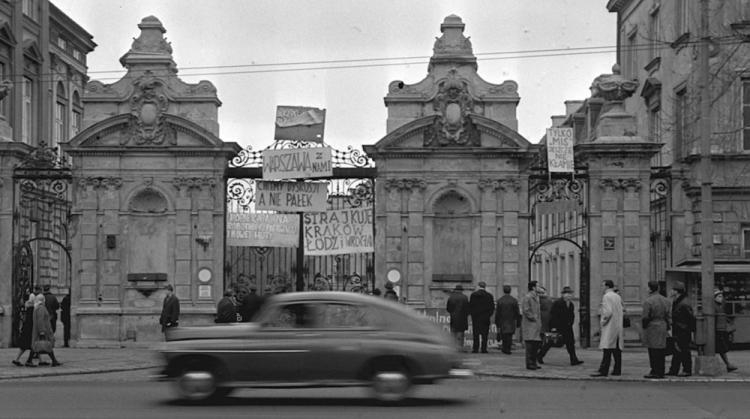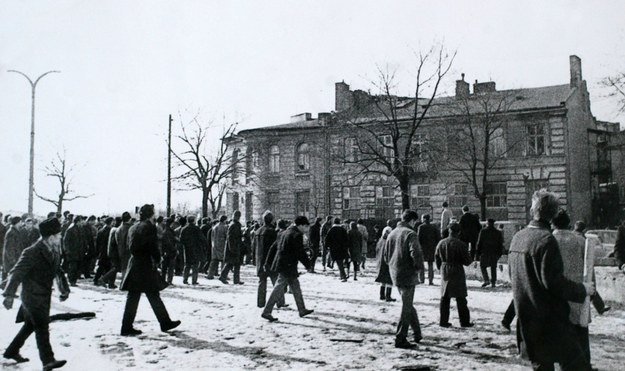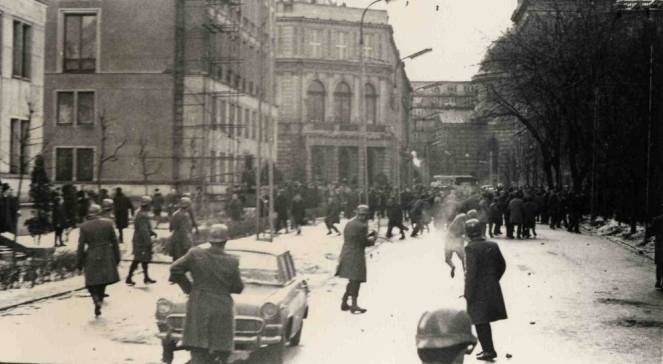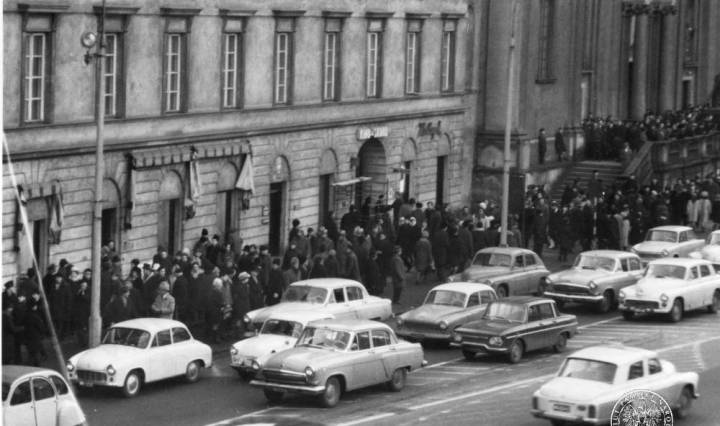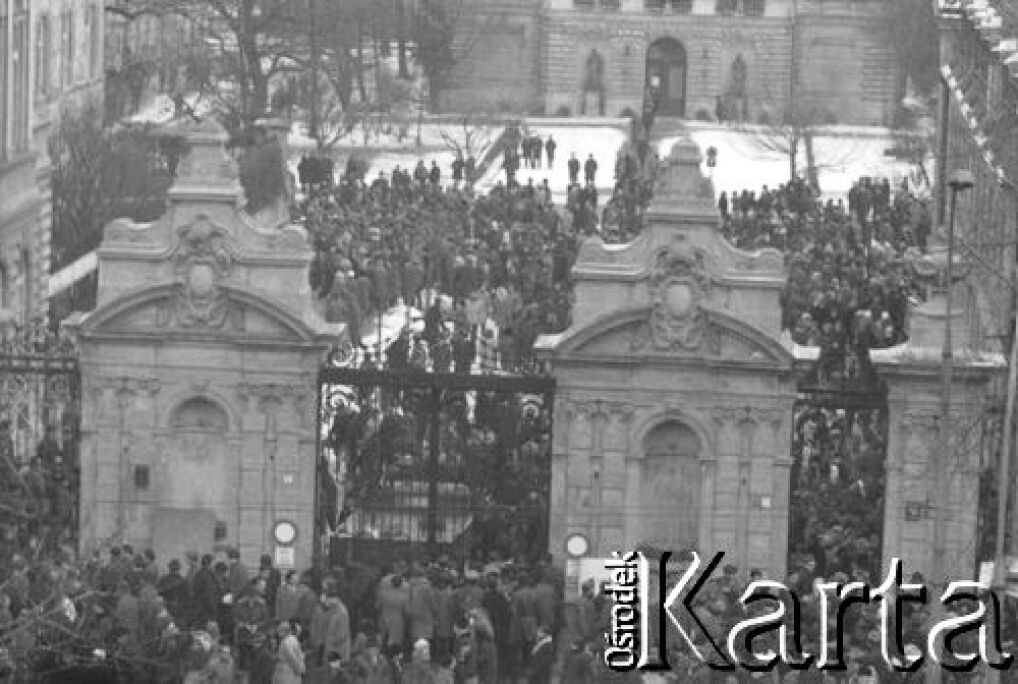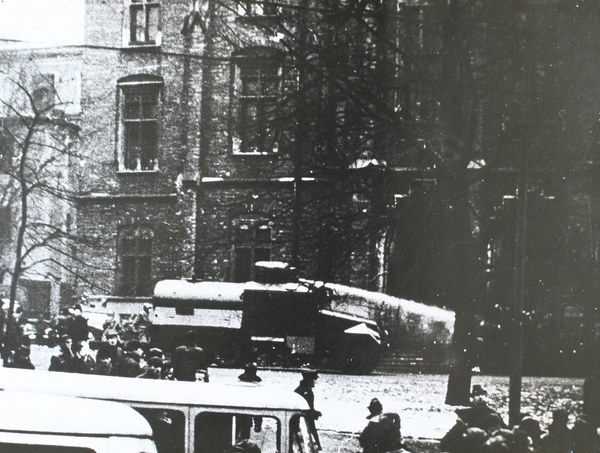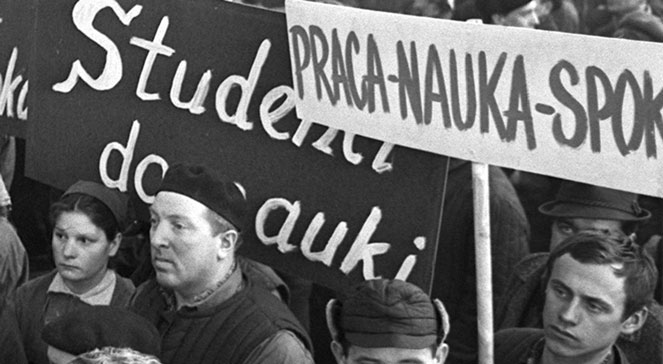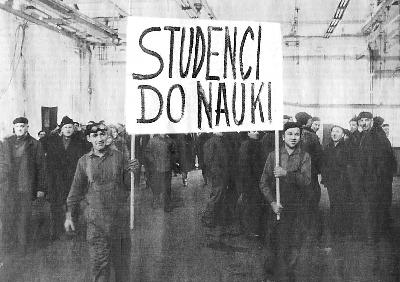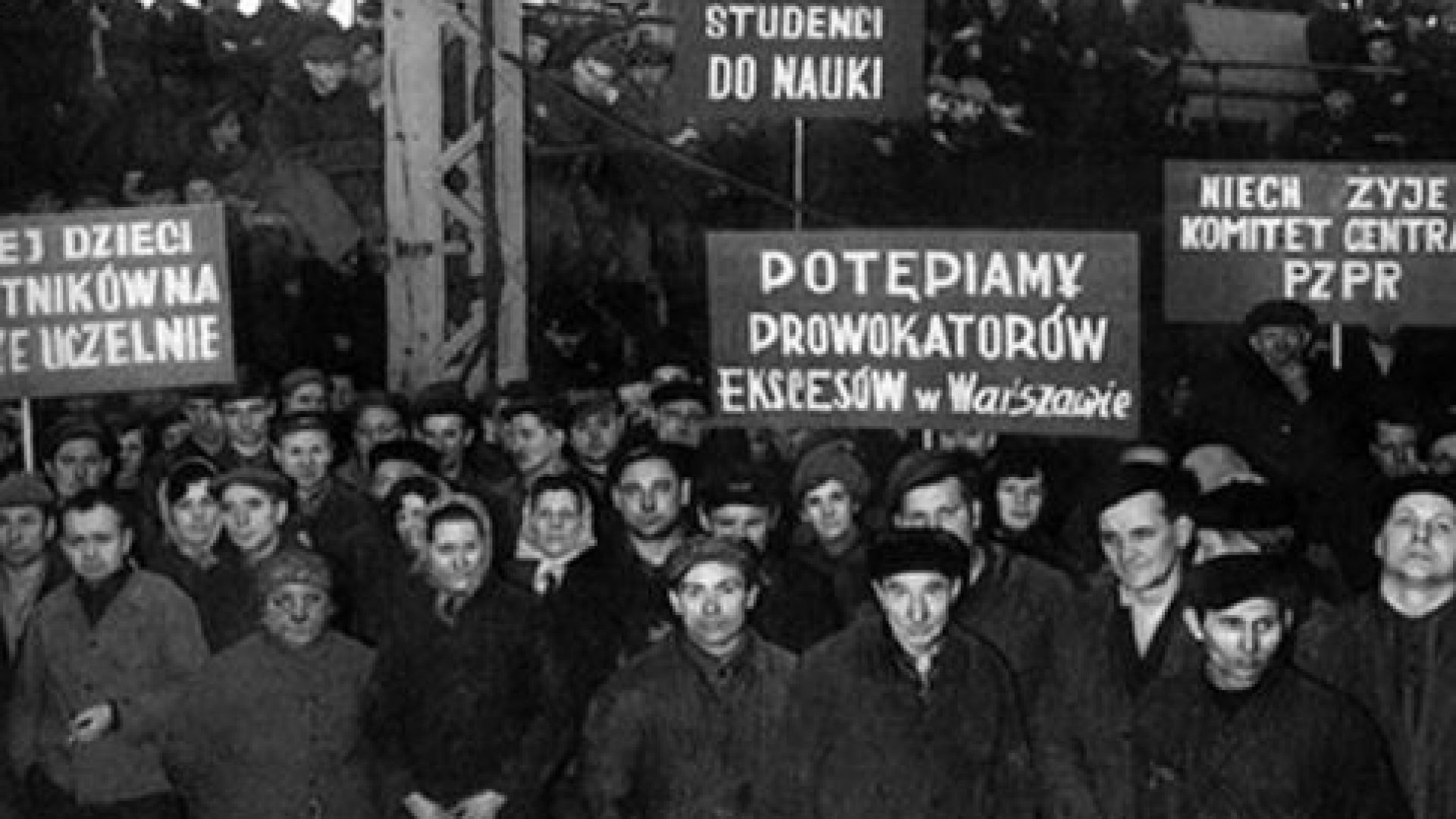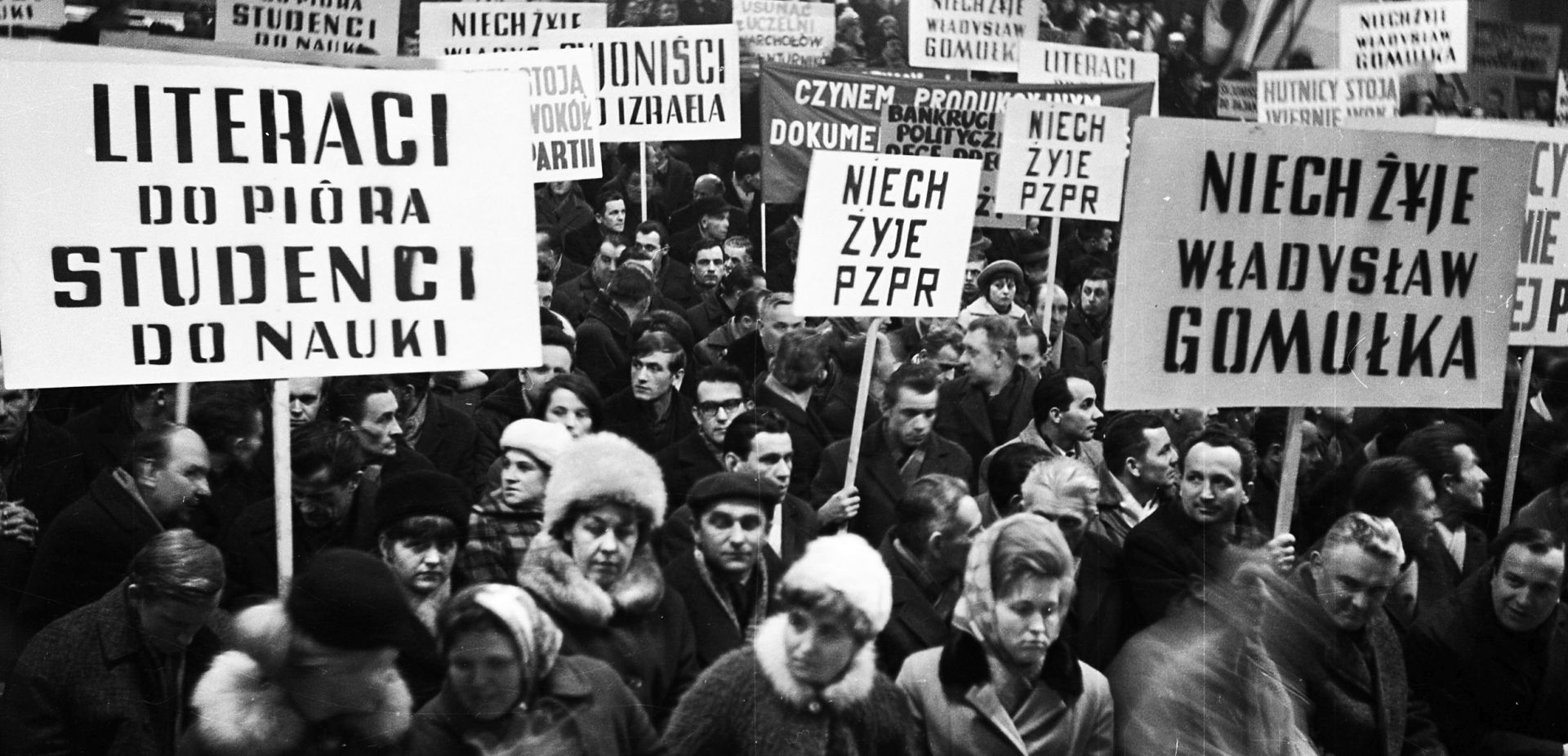Post by Bonobo on Mar 11, 2018 15:49:25 GMT 1
In 1968 Polish students and intellectuals were second to fight for their rights, after American ones, and before European ones.
The text below is a copy of the post in polandsite.proboards.com/thread/70/polish-resistance-communism
1968 was a year of turmoil and trouble. According to Chinese Zodiac, it was the year of the Monkey. Whenever Monkey sign rules, there is a common need for change.
Poles soon became disenchanted with their first secretary, Władysław Gomułka. en.wikipedia.org/wiki/W%C5%82adys%C5%82aw_Gomu%C5%82ka He turned out to be a dogmatic communist despite his attempts to preserve certain independence from the Soviet Union.
Intellectuals complained about the censorship and limited provision of paper for book publications. Average people complained about hard conditions of life, understocked stores and low salaries.
In 1968, 12 years after the previous crisis, students and intellectuals rose and spoke out their grievances. The communist regime cracked on them with its usual brutality.
en.wikipedia.org/wiki/1968_Polish_political_crisis
The Polish 1968 political crisis (also known in Polish as 'March 1968' or 'March events', Polish: Marzec 1968 or wydarzenia marcowe) describes the major student and intellectual protests against the communist government of the People's Republic of Poland, their repression by the security servies, and the concurrent Soviet anti-Zionist reaction. The protests coincided with the events of Prague spring in neighboring Czechoslovakia.
In January, the communist government banned the performance of a play by Adam Mickiewicz, (Dziady, written in 1824) and directed by Kazimierz Dejmek at the Polish Theatre in Warsaw, on the grounds that it contained Russophobic and "anti-socialist" references. The play had been performed 14 times, the last on January 30. Dejmek was expelled from the Communist Party and later fired from the National Theatre.
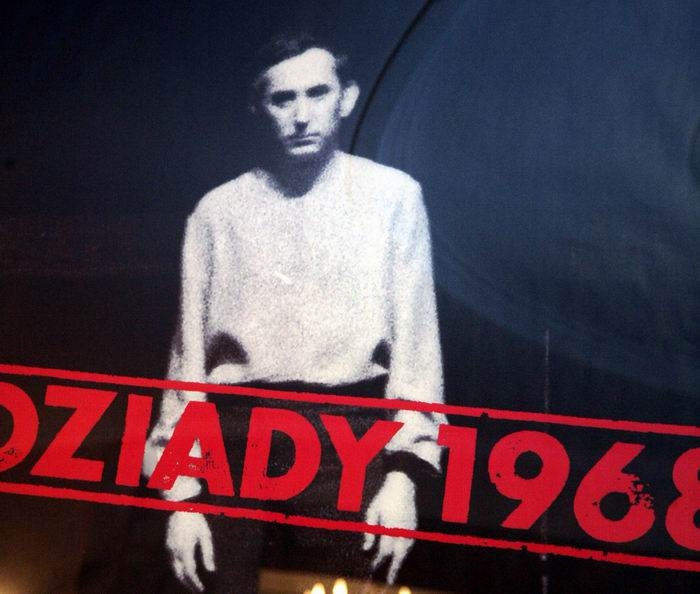
The Warsaw Writers' Union condemned the ban on March 2, followed by the Actors' Union. A crowd of some 1,500 students protesting at Warsaw University on March 8 was met by attacks. Within four days, protests spread to Kraków, Lublin, Gliwice, Wrocław, Gdańsk, Poznań, and Łódź. Bands of Communist party "worker-squads" attacked the students, followed by police in Warsaw and Lublin. Mass student strikes took place in Wrocław on March 14-16, Kraków on March 14-20, and Opole. A call for a general strike was issued from Warsaw on March 13. A hardline speech by Władysław Gomułka on March 19 cut off the possibility of negotiation. Further student protests, strikes and occupations were met with the mass expulsion of thousands of participants. National coordination by the students was attempted through a March 25 meeting in Wrocław; most of its attendees were jailed by the end of April. At least 2,725 people were arrested for participating. According to internal government reports, the suppression was generally effective, although students were able to disrupt May Day ceremonies is Wroclaw.
It all started with Dziady, a patriotic play by the greatest Polish poet, Mickiewicz.
marzec1968.pl/portal/m68/797/6959/Dziady.html
Students, their teachers and other gather in front of universities to protest



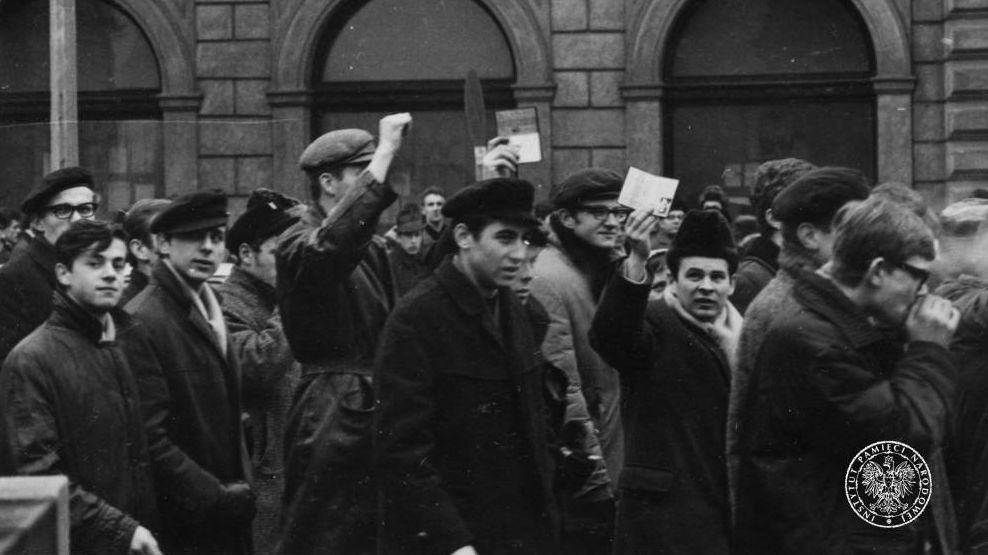
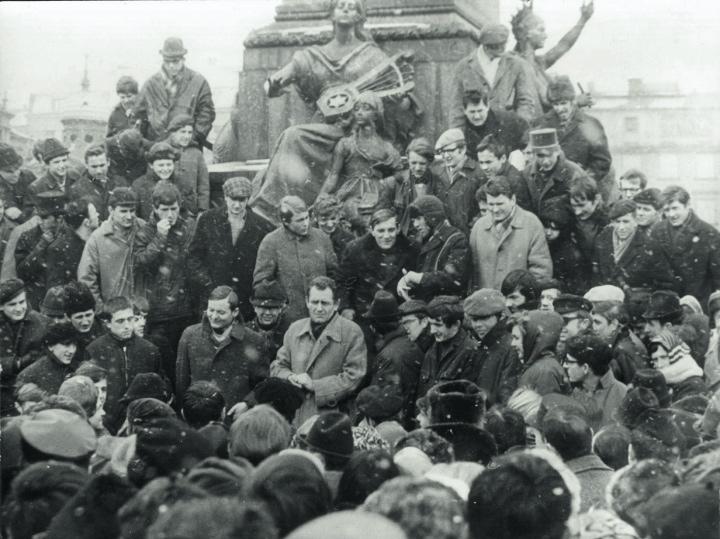
![]()
![]()



The police attacks




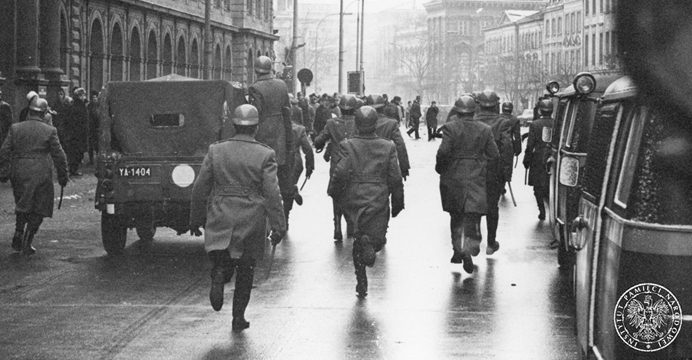

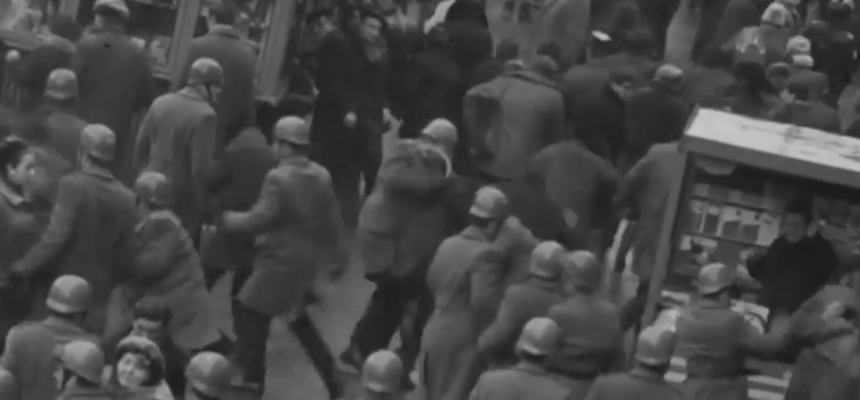
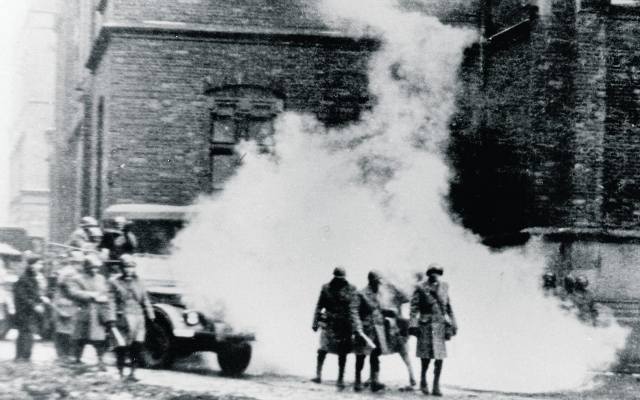
Running away...



from the brutal police

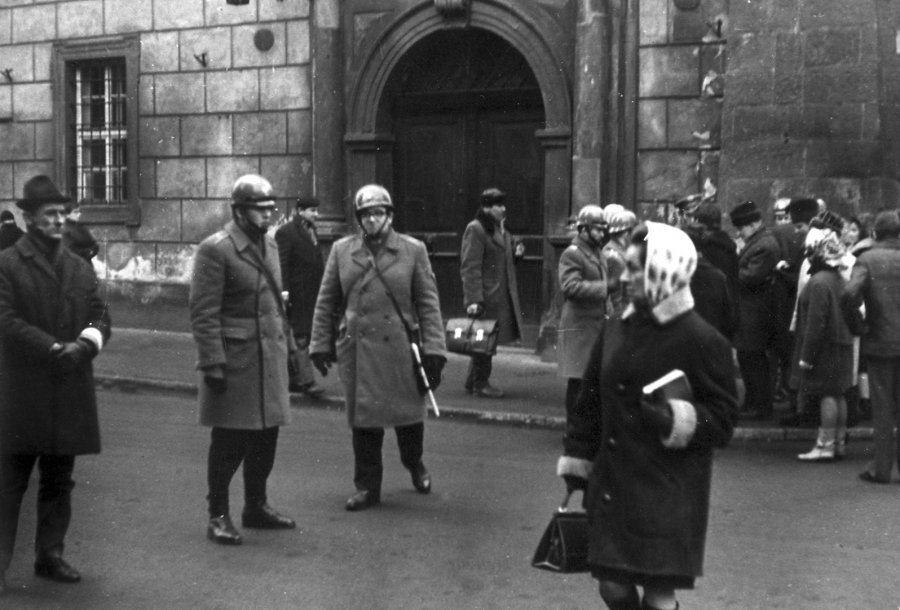

Churches where students hid were sometimes tear gassed

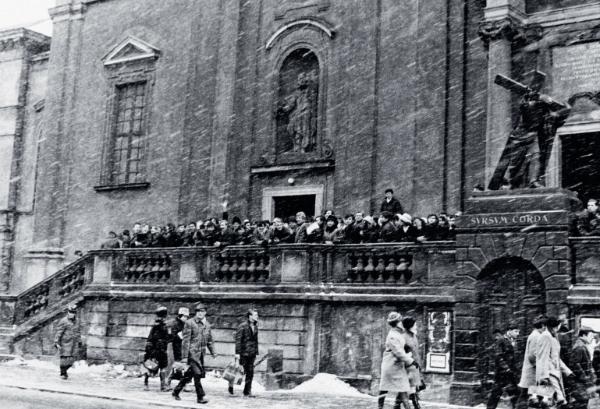
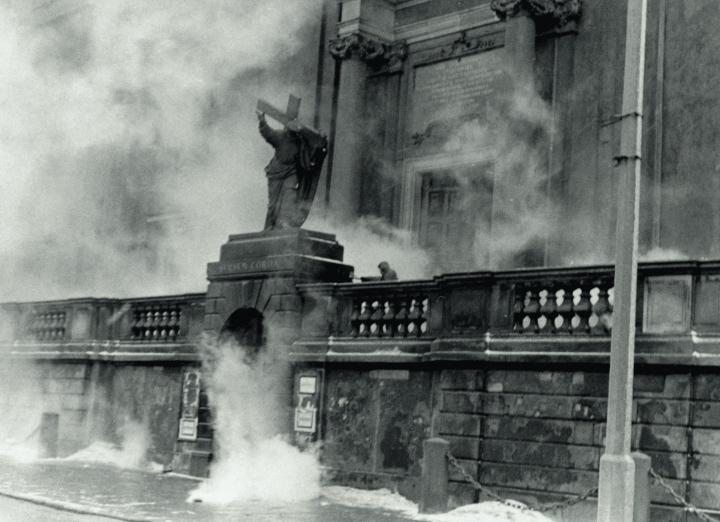
The map of protests. All cities with academic life protested.

Students` banner: Truncheons can`t kill the truth.

Students on strike thanked Warsawians for their aid: food and blankets.
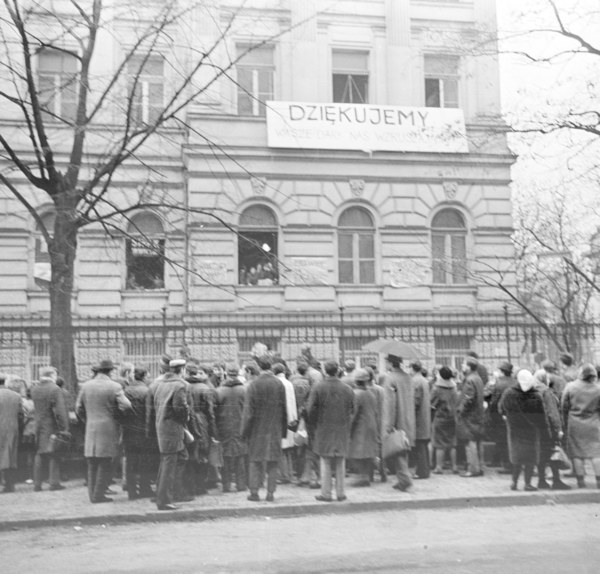
Workers didn`t support students. Banner reads: Writers - return to the pen, students - return to studying.
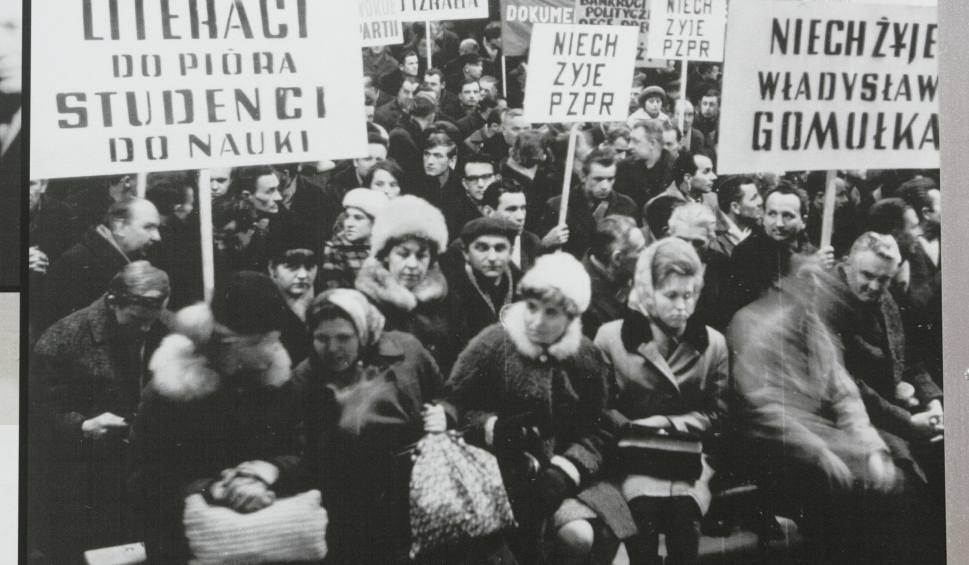
Students march to demand the release of their imprisoned mates.
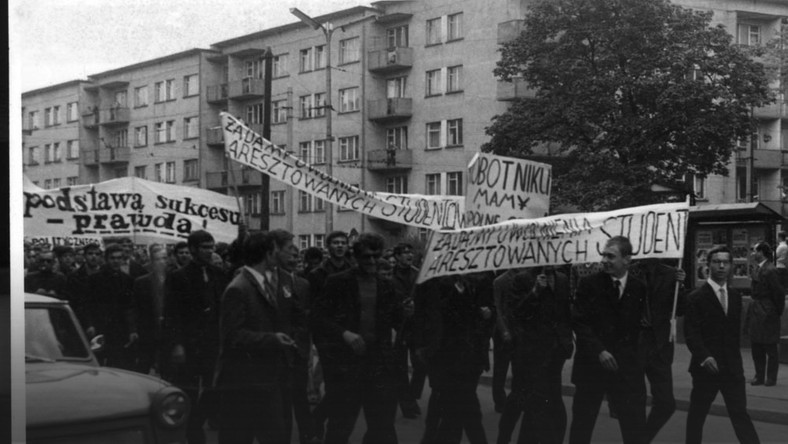
Some professors defended their students and went to court to testify for those accused.
The text below is a copy of the post in polandsite.proboards.com/thread/70/polish-resistance-communism
1968 was a year of turmoil and trouble. According to Chinese Zodiac, it was the year of the Monkey. Whenever Monkey sign rules, there is a common need for change.
Poles soon became disenchanted with their first secretary, Władysław Gomułka. en.wikipedia.org/wiki/W%C5%82adys%C5%82aw_Gomu%C5%82ka He turned out to be a dogmatic communist despite his attempts to preserve certain independence from the Soviet Union.
Intellectuals complained about the censorship and limited provision of paper for book publications. Average people complained about hard conditions of life, understocked stores and low salaries.
In 1968, 12 years after the previous crisis, students and intellectuals rose and spoke out their grievances. The communist regime cracked on them with its usual brutality.
en.wikipedia.org/wiki/1968_Polish_political_crisis
The Polish 1968 political crisis (also known in Polish as 'March 1968' or 'March events', Polish: Marzec 1968 or wydarzenia marcowe) describes the major student and intellectual protests against the communist government of the People's Republic of Poland, their repression by the security servies, and the concurrent Soviet anti-Zionist reaction. The protests coincided with the events of Prague spring in neighboring Czechoslovakia.
In January, the communist government banned the performance of a play by Adam Mickiewicz, (Dziady, written in 1824) and directed by Kazimierz Dejmek at the Polish Theatre in Warsaw, on the grounds that it contained Russophobic and "anti-socialist" references. The play had been performed 14 times, the last on January 30. Dejmek was expelled from the Communist Party and later fired from the National Theatre.

The Warsaw Writers' Union condemned the ban on March 2, followed by the Actors' Union. A crowd of some 1,500 students protesting at Warsaw University on March 8 was met by attacks. Within four days, protests spread to Kraków, Lublin, Gliwice, Wrocław, Gdańsk, Poznań, and Łódź. Bands of Communist party "worker-squads" attacked the students, followed by police in Warsaw and Lublin. Mass student strikes took place in Wrocław on March 14-16, Kraków on March 14-20, and Opole. A call for a general strike was issued from Warsaw on March 13. A hardline speech by Władysław Gomułka on March 19 cut off the possibility of negotiation. Further student protests, strikes and occupations were met with the mass expulsion of thousands of participants. National coordination by the students was attempted through a March 25 meeting in Wrocław; most of its attendees were jailed by the end of April. At least 2,725 people were arrested for participating. According to internal government reports, the suppression was generally effective, although students were able to disrupt May Day ceremonies is Wroclaw.
It all started with Dziady, a patriotic play by the greatest Polish poet, Mickiewicz.
marzec1968.pl/portal/m68/797/6959/Dziady.html
Students, their teachers and other gather in front of universities to protest








The police attacks








Running away...



from the brutal police



Churches where students hid were sometimes tear gassed



The map of protests. All cities with academic life protested.

Students` banner: Truncheons can`t kill the truth.

Students on strike thanked Warsawians for their aid: food and blankets.

Workers didn`t support students. Banner reads: Writers - return to the pen, students - return to studying.

Students march to demand the release of their imprisoned mates.
Some professors defended their students and went to court to testify for those accused.

















